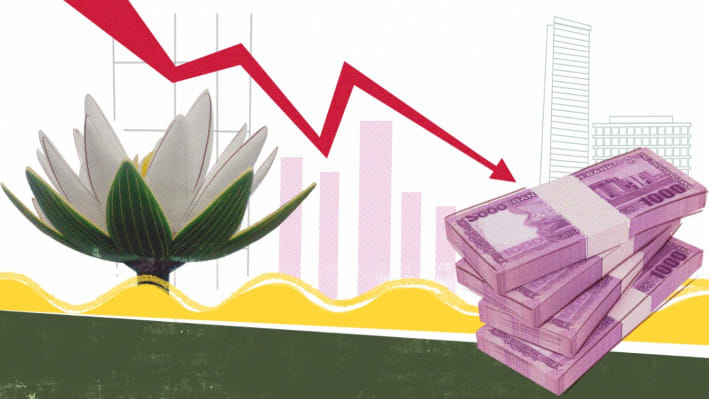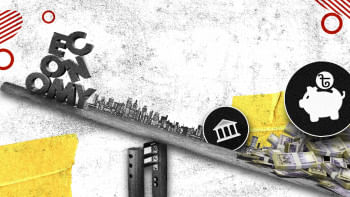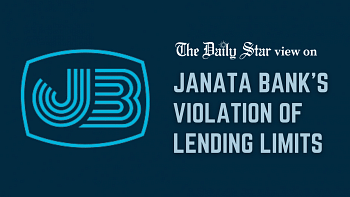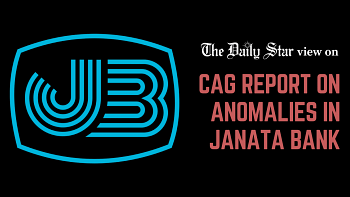Bangladesh Banking sector
Why our balance of payments won’t balance out post-election
With the facade of the elections at its height, prevailing financial issues seem to have faded into the background.
Issues our banking sector must address
As most of our economic sectors depend heavily on banks, it has created many problems for the banking sector and its depositors.
'Political support needed to heal banking ills'
Political support and a strong Bangladesh Bank are crucial to deal with the challenges, including high non-performing loans (NPLs), in the banking sector, said Mustafa K Mujeri, a former chief economist of the central bank, yesterday.
Our banking sector, where no rules apply for vested quarters
In the banking sector of Bangladesh, exemptions from rules and regulations for powerful loan defaulters seem to be the default rules.
Why keep on awarding errant defaulters?
Janata Bank must answer for its poor handling of AnonTex’s loans
Wilful defaulters are bleeding the banks dry
Is the government ever going to stop them?
Don’t fall for quick fixes in bank sector
Relaxing loan repayment is unlikely to work if habitual defaulters continue to be tolerated
NBFIs lose over 48,500 deposit accounts in 3 months
Non-bank financial institutions in Bangladesh lost 48,637 deposit accounts in the three months to December as savers moved away from NBFIs owing to the imposition of the cap on the deposit rate and the erosion of confidence in the wake of allegations of irregularities at some banks.
The joke is really on us
Moody’s, one of the big three global rating agencies, downgraded its outlook for Bangladesh’s banking sector from “stable” to “negative.”
Why our balance of payments won’t balance out post-election
With the facade of the elections at its height, prevailing financial issues seem to have faded into the background.
Issues our banking sector must address
As most of our economic sectors depend heavily on banks, it has created many problems for the banking sector and its depositors.
'Political support needed to heal banking ills'
Political support and a strong Bangladesh Bank are crucial to deal with the challenges, including high non-performing loans (NPLs), in the banking sector, said Mustafa K Mujeri, a former chief economist of the central bank, yesterday.
Our banking sector, where no rules apply for vested quarters
In the banking sector of Bangladesh, exemptions from rules and regulations for powerful loan defaulters seem to be the default rules.
Why keep on awarding errant defaulters?
Janata Bank must answer for its poor handling of AnonTex’s loans
Wilful defaulters are bleeding the banks dry
Is the government ever going to stop them?
Don’t fall for quick fixes in bank sector
Relaxing loan repayment is unlikely to work if habitual defaulters continue to be tolerated
NBFIs lose over 48,500 deposit accounts in 3 months
Non-bank financial institutions in Bangladesh lost 48,637 deposit accounts in the three months to December as savers moved away from NBFIs owing to the imposition of the cap on the deposit rate and the erosion of confidence in the wake of allegations of irregularities at some banks.
The joke is really on us
Moody’s, one of the big three global rating agencies, downgraded its outlook for Bangladesh’s banking sector from “stable” to “negative.”
What 2022 should have taught us
Far from being a year in which our economy recovered, 2022 proved to be a year where we discovered numerous cracks in it.











